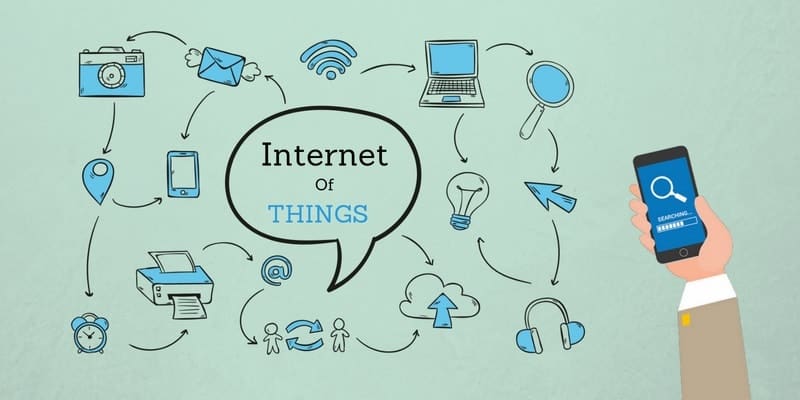
The Internet Of Things For Accountants: Time To Get Ahead With Pace!!
For decades, the internet has evolved as one of the most transformational technological developments which make people-to-people connection arguably convenient. Millions of people generate a vast amount of business and personal data on the Internet every day which is mostly about people and is used by people. But as we all know, every era of technology comes of age when it needs to be replaced by another cutting-edge technology. The “new internet” or you can say “internet of things” is the same emerging technology — set to transform the basic idea of the hyper-connected world — which will connect people with things.
Till yet we’re connecting the smartphone with internet to make person-to-person or person-to-things interactions possible. Tasks, like downloading apps, syncing emails and communicating over web-based platforms, are a part of day-to-day life and are possible just because of the internet. But thing-to-thing interaction is something new and cannot be done using the same technology, however, IoT is versed enough to convert it into a reality. The extended application of the internet allows two devices to exchange their data and information while connected with each other via the internet.
Why Should Accountants Care About The IoT?
It is well-known that accountants often find it hard to collect real-time information which can help them to handle tragic situations calmly and more potent. IoT offers great ease in crucial tasks like business planning and resource allocation to accountants. As day-by-day, our things are becoming more human by getting the ability to sense, communication in between two devices or things turned out to be more profitable.
Utilizing thing-to-thing interaction within the business eases many tasks for accountants such as server downtime scheduling, resources allocation, and manpower deployments and decreases the chance of risk simultaneously. Majority of businesses actively minimizing the fraud cases as they’re able to get prior information on such issues. Therefore, it is easy for them to identify and handle such potential issues with best-suited responses which are simple yet effective to implement.
Accountants can easily get into the new world of huge data by changing their accounting and reporting ways. To take full use of IoT in the accounting sector, accountants must need to be tech-savvy. However, it is true that receiving data from a device instead of a person is like learning a whole new concept for accountants. Thus it is obvious — understanding and adapting all the opportunities offered by IoT is more like a challenge itself. But the more significant challenges that accountants might face with IoT are:
Complex Data Governance
Talking about the hurdles that come to notice after IoT implementation, getting accurate and authentic data from the sources is unassured. As of now, ERP systems handles most of the data and they’ve proper internal controls with them which ensure no risk or fake data. Relying on them is far easy than that of IoT as the assurance of receiving correct numbers is uncertain. In the worst case: we all end up with corrupted data or poor automated decisions if the widespread network of devices our accounting systems are connected gets in touch with threats.
Security And Privacy of Data
Imagine, when all of your belongings such as a car, watch, washing machine, system on which you work and most importantly phone each know secrets of you, isn’t it’s easy to track you and your data? We need to articulate strategies that help us to modulate data protection policies between businesses and their devices. It is more than essential to ensure security and privacy while considering IoT as smart technology for business. Self-driving cars and machines are the need of everyone but can we trust them in the long term?
Internet of things will change the outlook of the accounting industry, but the same cannot happen overnight. It is apparent that most of the accountants will become better data specialists by learning the language of IoT. Change is happening; accounting professionals need to prepare themselves to recognize these changes and then only they can embrace the new world on the horizon.
 written by
written byAbout Author






